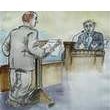Ascertaining genuiness of children of void marriages
 Rajesh Tandon
(Querist) 01 October 2012
This query is : Resolved
Rajesh Tandon
(Querist) 01 October 2012
This query is : Resolved
(a) Brief Background -I have been doing their duties of Director, Ex-Servicemen Helpline (ESM Helpline) for quite some time. During the course of my duties, I have come across a case wherein an ex-servicemen who has died, but during his lifetime he had two marriages. He had divorce from the first wife and thereafter married for the second time. As for the pension regulations, an unmarried and unemployed daughter if there be from first marriage i.e from divorce mother is entitled to share of pension though the divorce mother is not entitled to the pension. In the present case, the ESM has one Daughter A, who is currently unemployed and unmarried from divorce mother i.e from first marriage of her father entitled for share of pension along with Wife B(second wife after divorce) as per the clause of division of pension under pension regulations. Incidentally Wife B(second wife after divorce) does not have any children. The details of the record of children from the first wife and name of second wife B are duly entered in the record of ESM held with Army authorities. As far as the matter of division of pension between Daughter A and Wife B is concerned, it is almost a clear situation. However, what is not clear is the latest development, which is that a third claimant for the pension i.e a daughter from third lady Daughter C has suddenly appeared in front of Army authorities. Based on the claim from the third-party, authorities in Army Headquarter have decided to distribute pension between three parties. The Daughter A visited the ESM helpline asking for a legal query as to what is the basis for any administrative authority to check, the claim of pension by a person whose name has not even been entered in the record of any ex-government employee. It has been learnt during the interaction with Daughter A that Daughter C is from a Maid servant D who used to work for her father.
(b) Query No 1 (on children born out of void marriages) - Since section 16 of The Hindu Marriage Act,1955, confers legitimacy to the children born out of void marriages& (Supreme Court verdict on Rameshwari Devi vs State Of Bihar And Others on 27 January, 2000), and accordingly, the pension regulation also covers the entitlement of pension two children born out of void marriages,kindly clarify
(i) as to what is the basis/documents for administrative authorities to decide as to if Daughter C is a genuine claimant born out of the void marriage or just producing some documents.
(ii) Is it that the third-party i.e Maid servant D has to first approach the civil court to establish her marriage whereby the civil court decides as to if the marriage occurred during the lifetime of second legally wedded wife B of ESM to declare it as a void marriage, and further establish as to if Daughter C is actually born from wedlock between ESM and Maid servant D.
(iii) Is it just producing of certain documents by the third claimant that the administrative authorities should decide about the division of pension for the third-party or should they rely on the true copy of the court judgement which says that Daughter C is actually born from a void marriage between ESM and Maid servant D. Unfortunately, I have come an instance of a person giving wrong declaration on an affidavit.
(iv) Is it that any administrative authority should rely solely on documents obtained from office of registrar of birth and death instead of any court judgement?
(v) Any other documents which administrative authority should take into account as a basis for deciding the claim for division of pension?
 Tajobsindia
(Expert) 02 October 2012
Tajobsindia
(Expert) 02 October 2012
1. A child can never be illegitimate. Because his relationship with his mother and father is independent of the legal validity of the relationship between his parents. This is a settled principle of law, declared in judicial pronouncements while determining issues connected to rights of maintenance, inheritance and succession of children, born out of marriages or void and voidable marriages.
2. The Hindu Marriage Act, Succession Act and similar legislation also speak on rights of children who are allegedly illegitimate in the wake of invalid marriages.
3. I don’t think a child in such a case can assert any right. The case may have no legal ramification at all even if a decree of declaration is passed by a civil Court. If a child’s mother has not made any claims regarding her marriage — valid or invalid in the eye of law — no provision of Hindu Marriage Act or Succession Act shall apply and the child will be left with no remedy under the law over his father’s properties which also includes share in Pension of deceased Army man.
4. The EMS has to first check if anybody's name is mentioned in the nomination form, then the claim of other person can be inquired into by an Enquiry, but, in the facts and circumstances of the present query, name of the present Wife B and Daughter A if have been mentioned as a nominee in the service book and the name of the daughter D or event that matter her (maid) mother is already mentioned as the legal heir of the deceased army man in the general provident fund nomination form and, therefore, the amount towards death-cum-retiral benefit may be ordered to be paid to the daughter A, wife B and daughter D. If not then daughter D has currently no claim. Tomorrow say Son F will appear into the picture claiming to be son of a nurse who was then treating deceased army man and clams to be his wife E and so on so forth.
5. Hence in my opinion, as per Regn. no. 90 of Pension Regulation of the Army, Part II, 2008 if the deceased army men's pensions are regulated under Pension Regulations for the Army, Part I (2008)
Then,
(a) Subject to the provisions of clauses (b) and (c) below, arrears of pension or gratuity due to the estate of a deceased pensioner shall be paid as under:
(i) To the nominee, if a nomination has been made. The detailed instructions in this regard are given in Appendix - XXI to these Regulations.
(ii) In case no nomination was made or the nomination does not subsist, arrears of pension or gratuity due to the estate of a deceased pensioner may be paid to the legal heir on production of a certified copy of the probate of the WILL, if any, left by the deceased, or Letters of Administration granted by a Court of Law or an indemnity certificate signed by two responsible persons that the claimant is the legal heir and that they hold themselves responsible for the refund of the amount paid, in the event of any future claim being preferred. If the legal heir is a minor, payment shall be made to the legal guardian or when there is none, to the person appointed by a court of law.
(b) XXX
(c) XXX
